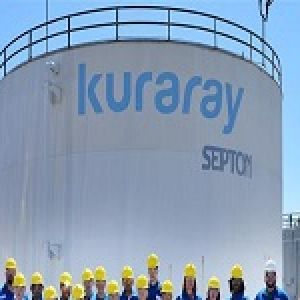Polymer Partnerships: Unveiling the Dynamic Duo of Selvol and PVA in Modern ApplicationsPosted by kuraraypovaluk on December 12th, 2023  Let's delve into the world of Selvol and PVA, exploring their individual properties and the diverse ways in which they contribute to the landscape of manufacturing and technology. Polyvinyl Alcohol (PVA): A Versatile Polymer Polyvinyl alcohol, commonly known as PVA, is a synthetic polymer derived from the hydrolysis of polyvinyl acetate. Its water-soluble properties make it an exceptional material with a wide range of applications across different industries. 1. Adhesives and Binders: PVA's solubility in water makes it an excellent choice for adhesives and binders. When PVA is dissolved in water, it forms a clear and viscous solution, creating a strong adhesive bond upon drying. This property has led to its extensive use in woodworking, paper packaging, and various bonding applications. 2. Construction Materials: In the construction industry, PVA acts as a mortar additive, enhancing the workability and adhesion of mortar. Its water-soluble characteristic ensures easy integration into mortar mixes, contributing to the creation of high-quality construction materials with improved strength and durability. 3. Textiles: PVA finds application in the textile industry as a sizing agent. Coating fibers with a PVA solution enhances the weaving process, resulting in improved tensile strength and reduced breakages during production. Additionally, PVA is used to create water-soluble films for embroidery, simplifying the removal of excess material after the embroidery process. 4. 3D Printing: The water-soluble property of PVA has revolutionized the field of 3D printing. Used as a support material, PVA enables the creation of intricate and complex structures. After printing, the PVA support material can be dissolved in water, leaving behind the desired object intact. This has expanded the possibilities in 3D printing, allowing for more intricate and sophisticated designs. 5. Paper Manufacturing: PVA's water-soluble characteristic is harnessed in the production of water-soluble paper. This eco-friendly alternative dissolves easily in water, minimizing environmental impact and waste in applications such as packaging and labeling. 6. Agriculture: In agriculture, PVA powder is used as a film coating for seeds. This coating provides a protective barrier around the seeds, preventing premature germination and ensuring a more controlled and effective seeding process. Now, let's shift our focus to Selvol. Selvol: Unlocking Unique Properties Selvol is a brand name for polyvinyl alcohol (PVA) produced by Sekisui Specialty Chemicals. While Selvol is a specific type of PVA, it has characteristics that make it stand out in certain applications. 1. Water Resistance: Selvol is known for its excellent water resistance, making it suitable for applications where water exposure is a concern. This property enhances its performance in environments where traditional PVA may be less effective. 2. Coatings and Films: Selvol is widely used in the production of coatings and films. Its film-forming properties make it an ideal choice for applications where a thin, protective layer is required. This includes coatings for various surfaces, providing durability and resistance to environmental factors. 3. Adhesives: Selvol is employed in the formulation of adhesives, offering enhanced water resistance compared to standard PVA. This makes it valuable in applications where adhesives need to withstand exposure to moisture or water. 4. Textiles and Nonwovens: Selvol finds applications in textiles and nonwovens, contributing to the creation of fabrics with specific properties. Its water-resistant nature makes it suitable for textiles where moisture repellency is desired. 5. Paper and Packaging: In the paper and packaging industry, Selvol plays a role in providing water resistance to paper products. This is particularly valuable in packaging applications where protection against moisture is crucial. 6. Construction: Selvol is utilized in the construction industry, particularly in applications where water resistance is a priority. This includes the formulation of coatings, adhesives, and construction materials that need to withstand exposure to varying environmental conditions. Conclusion: A Duo Shaping Industries In conclusion, both Polyvinyl Alcohol (PVA) and Selvol, as a specific type of PVA, showcase the versatility and adaptability of polymers in various industries. PVA's widespread use in adhesives , construction materials, textiles, 3D printing, paper manufacturing, and agriculture highlights its broad application spectrum. On the other hand, Selvol, with its emphasis on water resistance, adds a layer of specialization, making it particularly valuable in environments where exposure to moisture or water is a critical consideration. The water-soluble nature of PVA makes it a preferred choice in applications where easy dissolution is essential, leading to its eco-friendly use in paper manufacturing, agriculture, and 3D printing. Meanwhile, Selvol's enhanced water resistance expands its role in areas like coatings, adhesives, textiles, and construction, where durability in the face of moisture is paramount. Together, PVA and Selvol exemplify the adaptability of polymers to meet specific needs across diverse industries. As technology and manufacturing continue to advance, the contributions of these polymers will likely expand, influencing innovations and sustainable practices in various sectors. Whether it's the versatility of PVA or the specialized water resistance of Selvol, these polymers continue to shape and redefine the possibilities in materials science and industry applications. Like it? Share it!More by this author |


